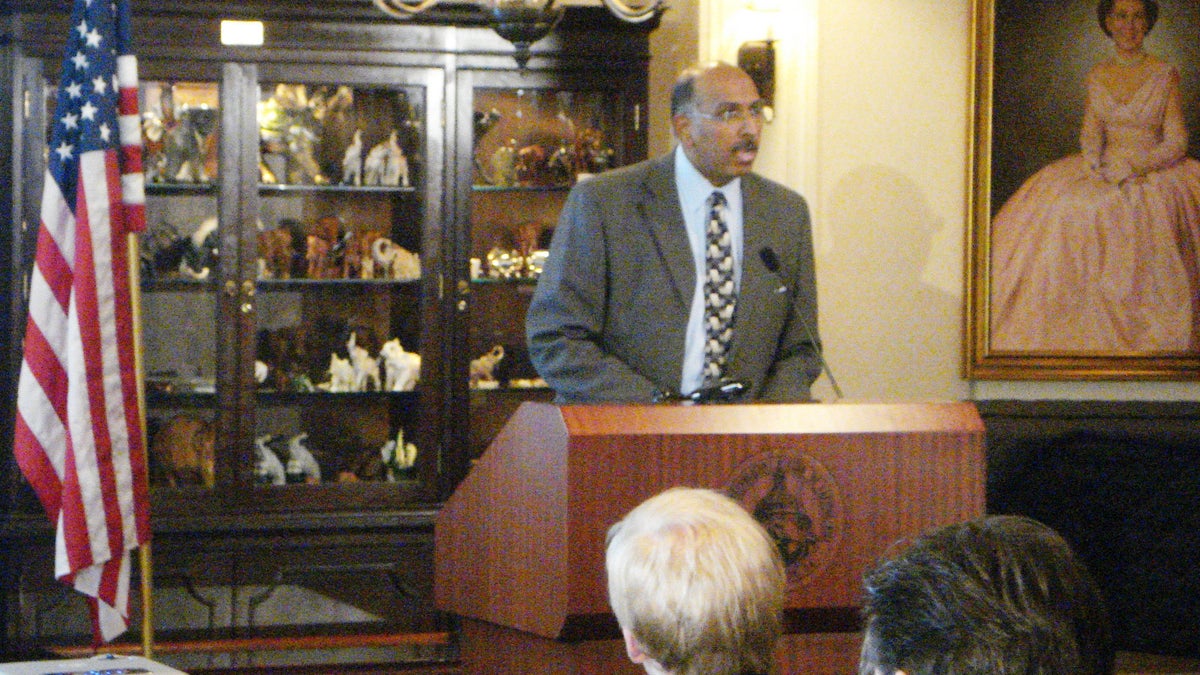GOP tries to rebuild brand with technology
Republican National Committee Chairman Michael Steele wants his party to be as tech-savvy as the Dems, but some GOP say they should focus on their message first.

WASHINGTON--The GOP doesn't have a technology problem, Republicans insisted Friday--it has an image problem.
Since Barack Obama deftly used new media and social networks to build unprecedented online support and win the presidency last year, the Republican party has been fighting to catch up to Democrats' use of technology.
"When we get to 2010, I want my campaigns here," Republican National Committee Chairman Michael Steele said as he held up his cell phone at the party's Tech Summit on Friday. "I want whatever we're doing to be within my thumb's reach. We don't want to just do what Obama did in '08--that's the floor."
Steele organized the Tech Summit, held at the party's swanky Capitol Hill Club, to field ideas from anyone willing to share about how the Republican party could make better use of technology.
Yet even though the party has a lesser presence online, its bigger problem is the lack of an inclusive, inspiring message, prominent party leaders and local activists said at the event. The party must decide on a message, they said, and then worry about how to use technology to communicate that message.
"What really matters in the long run is what you communicate, not how you communicate," said former House Speaker Newt Gingrich.
Democrats had a technological advantage in the 2008 elections because "San Jose and San Francisco is a liberal area," he said. More importantly, though, he said Democrats had the support of "a group of millionaires who hated Bush (and) a country mad about the war and (Hurricane) Katrina."
Republicans, he said, need to focus on popular ideas like the flat tax.
"This is not about outreach, this is about inclusion," Gingrich said.
Inside the Capitol Hill Club, an elegant townhouse a block from the Capitol that serves as RNC headquarters, party activists and platform developers took turns pitching ideas for using new media to communicate with voters. Just as many people, however, took the time to lament the party's lack of a message.
"Technology alone is not the answer to our problems," said Sean Doughtie, the CEO of Taproot Creative, an advertising and new media agency that has done work for the Florida Republican party.
"You can blog about blogging and Twitter about Twittering, but what we've been experiencing is a failure of our brand," Doughtie said, standing at a podium in front of a glass case display of elephant figurines.
Some presenters said the Republican party's lack of technological savvy was overstated.
Mindy Finn, a co-founder of RebuildTheParty.com, said she was optimistic the party could embrace technology because of its past experience. The goal of RebuildTheParty is to build an online grassroots campaign for the GOP.
"Despite what the press says, we actually had an e-campaign in 2004 that did many of the things the Obama campaign did," Finn said. "They just did it with many more people."
The 2004 election, however, took place at a time when Facebook was still an exclusive site for universities and YouTube didn't exist. In the 2008 presidential election, Barack Obama had 90 people working on his new media campaign while John McCain had four.
Developers at Friday's event shared ways to bring the GOP back up to speed. The company First Tuesday in November pitched its tracking technology that tells a campaign in real time when their supporters have voted.
Danny Allen, the managing director for the interactive ad agency Sensis, talked about using mobile ads to contact hard to reach audiences like minority groups.
Brian Williams, a vice president for the political data management firm Aristotle, suggested integrating back-end databases with front-end technology to allow developers to create their own tools to reach out to constituencies.
Some developers pitched ways to improve the party's use of technology while also improving its message. Even developing iPhone applications that parody Obama would be a step in the right direction, said Internet marketing strategist Jon Friesch.
"It's something people can laugh at," he said. "Then you start laying the groundwork for changing people's hearts and minds."

